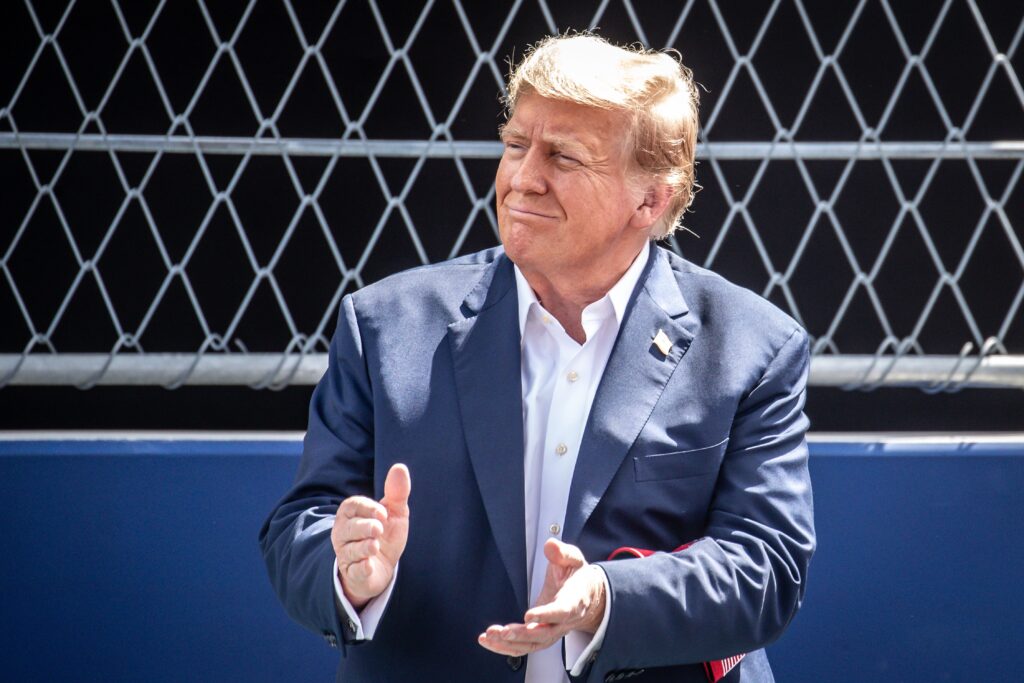Donald Trump was projected to become the 47th president of the United States on Wednesday, completing one of the most remarkable political comebacks in American history.
At 78 years old, Trump was on track to win a landslide victory in the Electoral College over Vice President Kamala Harris, securing key states like Georgia, Pennsylvania, and Wisconsin, which he had lost in 2020. He garnered strong support among white rural and working-class voters while also making significant inroads with ethnic minorities.
“There’s never been anything like this in this country, and maybe beyond,” Trump said at his victory rally at the Palm Beach County Convention Center, near his Mar-a-Lago resort. “We’re going to help our country heal,” he added. “We’re going to fix our borders… fix everything about our country.”
Trump’s win highlighted a successful night for Republicans, who were also expected to regain control of the Senate after four years in the minority. The fate of the House of Representatives remained uncertain, with final results not expected for several days.
In an unexpected turn, Trump appeared poised to win the popular vote, ending a two-decade losing streak for Republican nominees in the raw vote total.
The race was a dramatic repeat of 2016 for Harris supporters, who had gathered at Howard University to watch the results. They were left stunned and in tears as it became clear their candidate would not win. Ultimately, it was campaign co-chair Cedric Richmond who had to inform the crowd that Harris would not be appearing.
Trump had projected confidence throughout the campaign, focusing his messaging on male voters and holding a packed schedule of rallies and media appearances. In contrast, Harris campaigned as a pro-business advocate for the middle class, distancing herself from her earlier left-wing stances on issues like fracking and healthcare.
Trump’s victory makes him just the second president in history to be elected in non-consecutive terms, joining Grover Cleveland, who served as the 22nd president from 1885 to 1889 and the 24th president from 1893 to 1897.
Although the race was considered a toss-up heading into Election Day, the first sign that things were turning against Harris came when exit polls showed Americans were yearning for change and frustrated with economic strain and rising illegal immigration.
“I will fight for you, for your family and your future,” Trump vowed in his victory speech. “I will not rest until we have delivered a strong, safe, and prosperous America.”
Both Trump and Harris faced unique challenges as incumbents in the race. Trump, having been rejected by voters in 2020, returned to the race after President Biden’s decision not to seek re-election. Harris, on the other hand, took the Democratic nomination after a leadership push from Democratic elites, including House Speaker Nancy Pelosi and major party donors like George Clooney, to replace Biden.
The final days of the race were marked by controversy. A Trump rally at Madison Square Garden was marred by comedian Tony Hinchcliffe’s inflammatory remarks about Puerto Rico, while Biden’s own comments about Trump’s supporters were criticized for alienating swing voters.
Trump’s campaign also faced several challenges, including unprecedented criminal indictments in New York, Florida, Washington, D.C., and Georgia, related to attempts to overturn the 2020 election results. In the most shocking incidents of the race, Trump survived assassination attempts at campaign events in Pennsylvania and Florida.
Harris clinched the Democratic nomination in August following Biden’s withdrawal, which had been preceded by a disastrous debate performance. Biden’s verbal missteps during the debate raised concerns about his mental acuity, prompting questions about Harris’ readiness to step into the role.
Trump’s campaign, meanwhile, saw substantial support from both Republican loyalists and Democrats defecting to his cause, with high-profile backers like hedge fund billionaire Bill Ackman and Tesla CEO Elon Musk.
Trump campaigned on hardline policies, including securing the border, reversing energy regulations, and ending the Russia-Ukraine conflict. He also proposed taxpayer-funded in vitro fertilization and eliminating taxes on service workers’ tips, policies that Harris later adopted as part of her platform.


